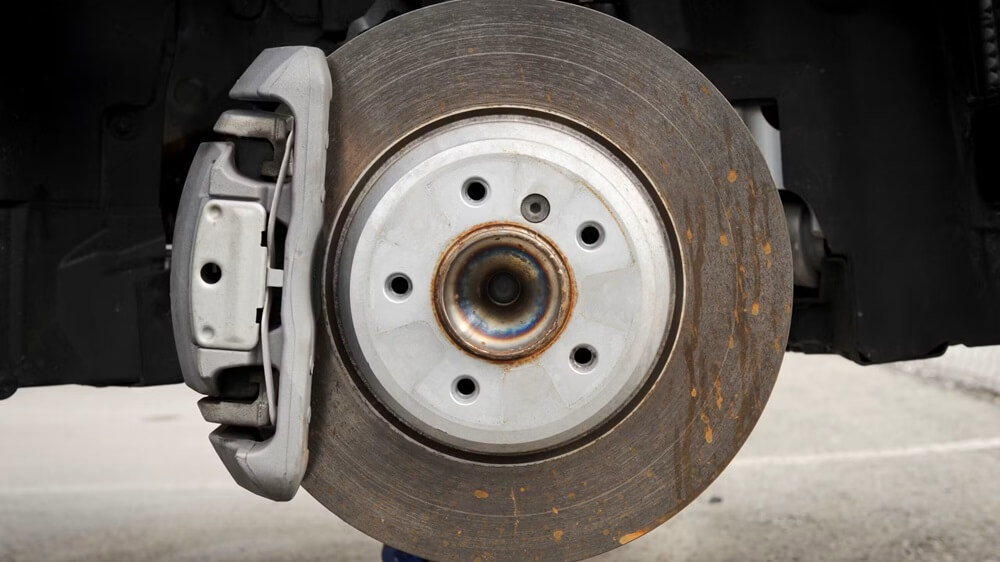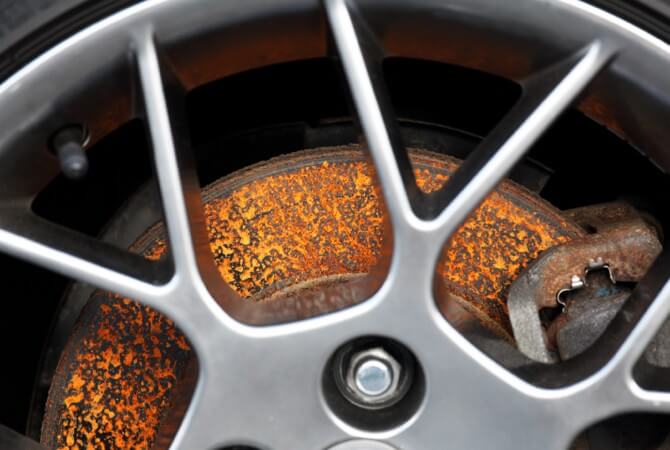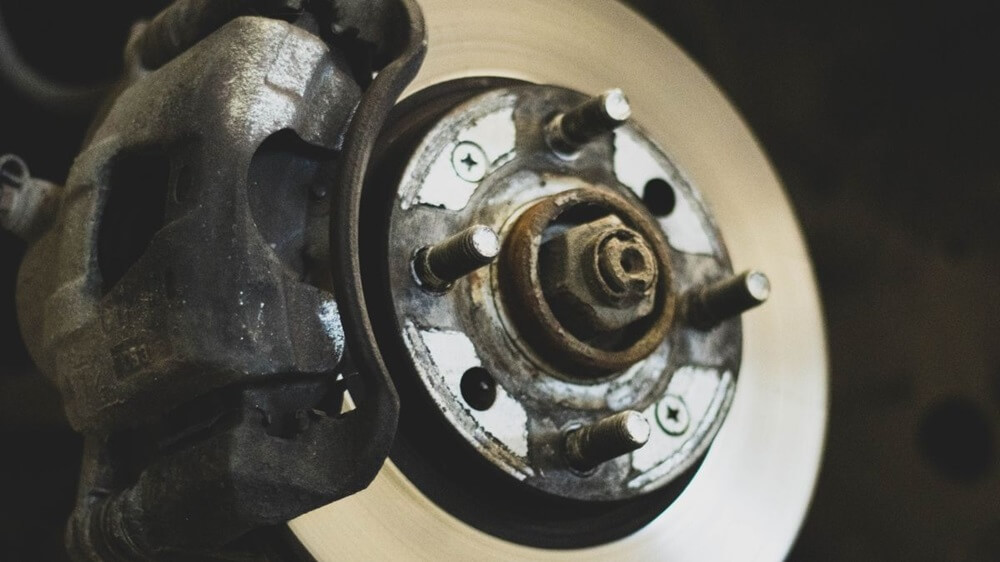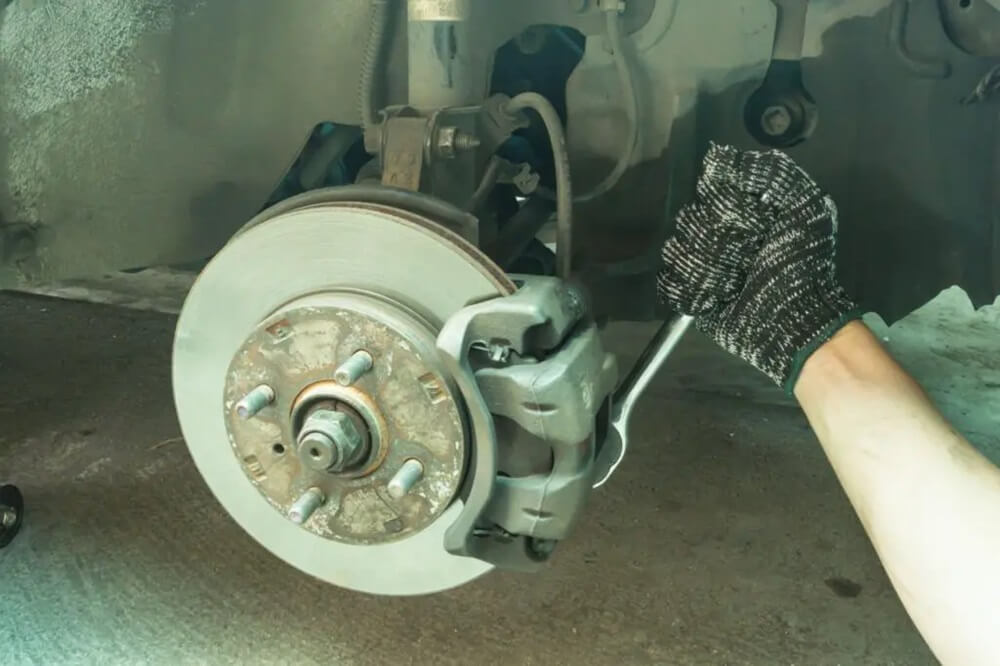When your brakes squeak after new pads and rotors, worrying about their safety or how well they were installed is normal. However, wait to worry. New brakes often make a lot of noise when first put on, but this is usually not a safety problem. Usually, this noise shows up when the brakes are getting used to each other.
Still, you should be careful. Something seems off, but it’s also not quite right. If your brakes make strange noises or act in strange ways, you should check them out more to ensure nothing is wrong. In this article, we will discuss why my brakes squeak after being replaced and the solutions to fix them.

Points To Consider When New Brakes Squeaking:
Let’s explore the sounds and appearances that may indicate potential issues, helping you identify anything unusual. We’ll also talk about why new brakes might make noise at first. Knowing these things after getting new brakes may make you feel safer and more at ease while driving.
- The protective coating on new brakes and wheels takes some time to wear off. Did you hear any sounds right after the installation? Likely, a layer of protection is just doing its job. There’s no need to worry—this is all pretty normal.
- If there is rain or a lake, water may find its way between your brake rotors and pads, making your brakes squeak. It’s just a small amount of water causing this.
- Getting your car checked by a mechanic is always good if you hear new brakes squeak when stopping slowly from one or both wheels or if the vehicle feels shaky when you speed up. They can check and see that everything is working right.
Brakes Squeaking After Being Replaced: Behind The Reasons
1. Set The Brakes
When new brakes are put on, they often make a squeaking sound. Different materials, like plastic, metal bits, and clay, are used to make these brakes. So they make that squeaky sound when you first use them. This is because the protective coating needs to wear off.

Everything is planned, and the noise should go away on its own.
2. Wet Brakes
The brake pad and the caliper are the two separate parts of each brake in your car. When you press on the brakes, these parts get very hot. Heat and water in your brakes may make them screech when they rub against each other if they are wet.

Most of the time, the noise goes away when the brakes dry out.
3. Insufficient Grease
Some brakes require a specific metal-free oil on the backing plate. If you forgot to put this on, your brakes might make more noise. You can tell if your brakes were installed correctly if the noise lasts a few days and the brakes feel a bit sticky. However, you might only need to add oil since many brakes come pre-greased or with a greased shim.

4. Not Having Noise-Canceling Shims
Sometimes, these little shims are included with brakes to reduce noise. If you overlooked them when you changed the brakes, they might be louder than usual.
The first time you use your brakes, they may make more noise, but that won’t affect their functionality.
Similar Posts:
- Brake Pedal Goes To The Floor
- Grooves in Brake Rotors
- Brake Discs Lipped Meaning
- What Happens If You Don’t Grease Brake Pads
- How To Get Air Out Of Brake Lines Without Bleeding?
How To Stop New Brakes From Squeaking?
1. Test Drive
Once you’re done putting on the new brakes, start the car and gently press the brake pedal. Be careful as you move forward to see how the brakes work. Take a short drive on an empty road to see how they handle normal driving conditions.
2. Drive Around
Sometimes, squeaks may be due to residual moisture or protected layers that have settled down. Take a few short drives without significant braking to allow the brake components to adapt. Most of the time, the noise disappears once the brakes are securely in contact with the road. You never know; you might notice that the sound is gone by the time you return home from the service shop!
3. Pro Help Needed
If the squeaks persist, it’s time for a professional check, whether you did it yourself or hired someone. There are still problems, or more work needs to be done to make things perfect. Being careless with the brakes is like playing with fire regarding your safety while driving.
Why Are My Brakes Still Grinding After Replacing Pads And Rotors?
1. Noisy Brakes on One Side:
Likely, the pads on one or two brakes aren’t working well with the wheels. Their comfort level may rise when it shouldn’t, meaning your engine or gearbox needs service. These brakes need to be fixed right away.
2. Uneven Acceleration:
The fact that the brake pads weren’t put on evenly is a red flag. It’s a big problem if it interferes with turning smoothly. If you press down on the gas pedal harder, the shaking might get worse. Don’t take risks; have a mechanic look at it immediately, especially if the wobbles and squeaks seem to work together as you speed up.
How Long Does It Take For New Brakes To Stop Squeaking?
Squeaking in new brakes usually persists for a few days to a few weeks after installation. However, if the noise continues after a month, it could be a concern. You can reduce this by ensuring the pads are properly seated.
However, if you’re still squeaking but the pads are good, you might want to consider brake quiet oils or consult a professional to pinpoint the cause behind the ongoing squeaking.
Conclusion
Brake noise after installation is normal and generally only lasts for a short time because new parts settle in or minor adjustments are needed. Some important things to do are to check the brakes, drive for a few days, and get professional help if the problems don’t go away. Specific issues for safe driving need to be fixed immediately, like individual brake sounds or shaking when speeding up. Regular checks and professionals help ensure that vehicles are safe and that brakes work as well as they can.


![Why Do My Brakes Squeak After New Pads And Rotors? [Solution] Why Do My Brakes Squeak After New Pads And Rotors](https://carstale.com/wp-content/uploads/brakes-squeak-after-new-pads-and-rotors-1024x457.jpg)